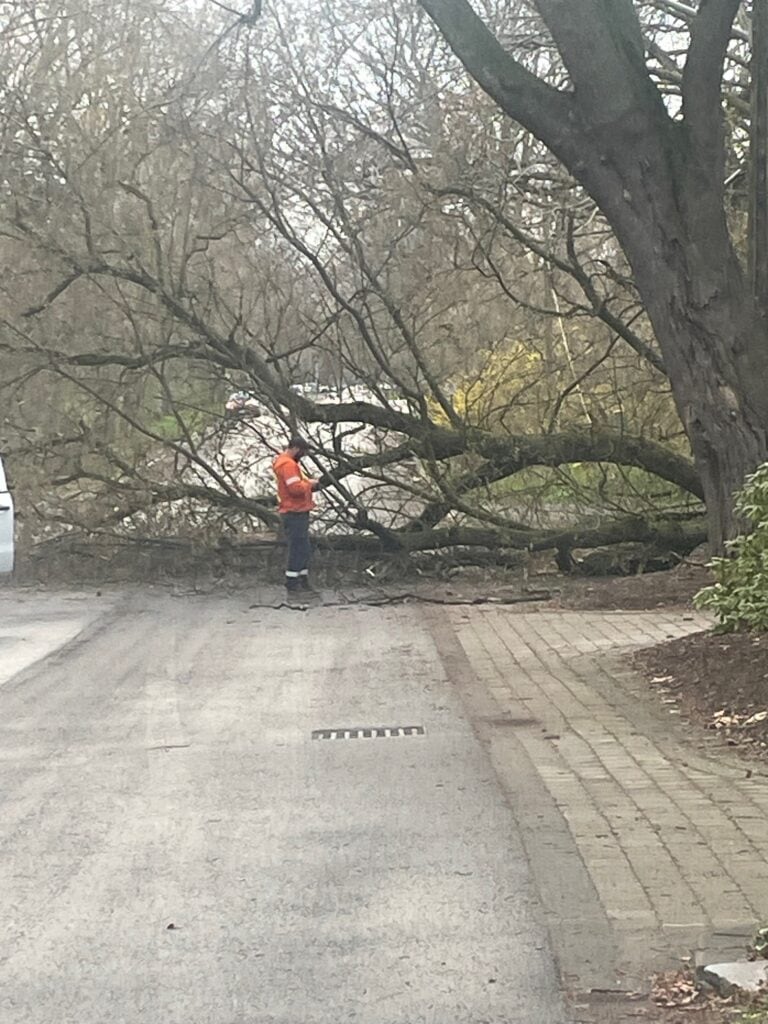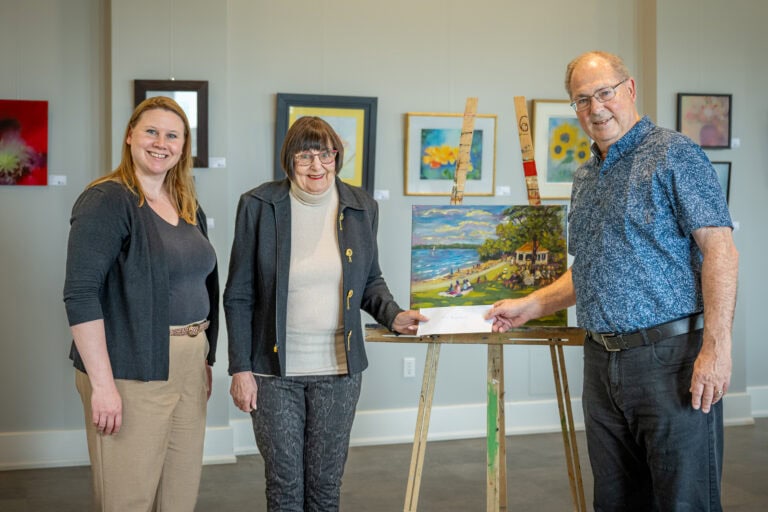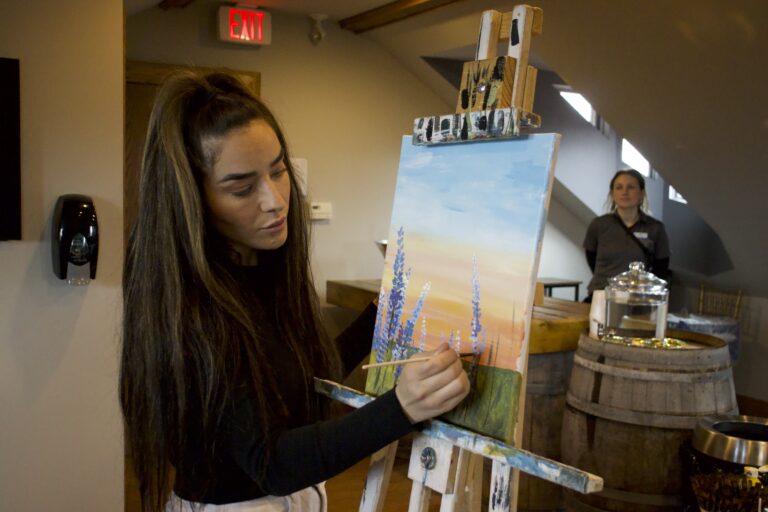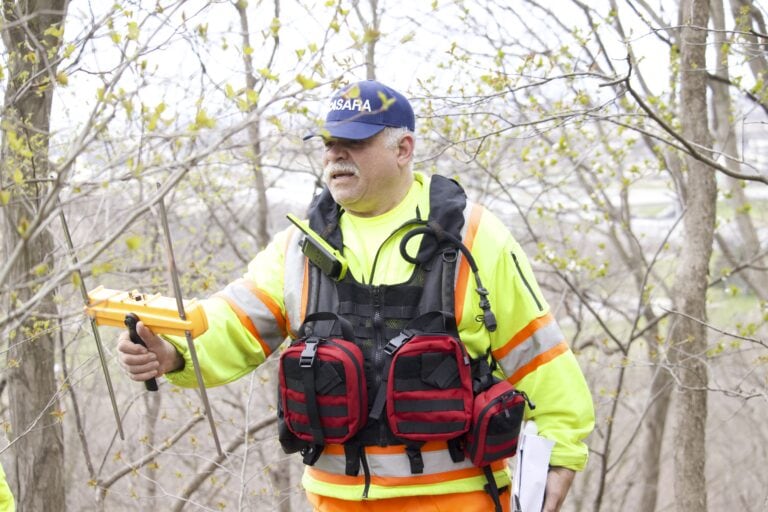Program offers spiritual connections, rides to appointments or just the sound of a friendly voice
As COVID continues to exert tremendous pressure on health workers, staff at the Niagara Regional Native Centre have found new ways to spread joy, give essential care and make life easier for the ailing members of Niagara’s Indigenous community.
Shyann Jenkins is a co-ordinator of the lifelong care program at the centre, one of the hallmark programs at native centres across Ontario.
“It’s been around since Indigenous people were able to leave the reserves in the 1950s,” Jenkins says
“That’s when the native centres started to pop up all around the country and when they were able to help those urban Indigenous people as they were coming into the cities,” she says.
When Indigenous youth began to leave reserves, the elderly and sickly often stayed behind and needed essential care.
“All of the elders and the seniors who were still at the reservations were getting sick, but all of the younger people and families were leaving the reservations to get better education and better jobs,” she says.
“So, that’s why we are in the centre to this day. Anyone who needs help, whether you are a senior or you’re young, we are there for everyone.”
Jenkins and fellow co-ordinator Stacy Cote are not just providing care to the elderly. They offer their help to any member of the Indigenous community who is suffering from an ailment that is inhibiting their quality of life.
“Sometimes it’s people who just go into the hospital and need help for maybe a month. We’re there for anything that they need,” Jenkins says.
Jenkins and Cote take on a vast array of responsibilities to help their clients. One of the important jobs they perform is driving people who are unable to transport themselves to medical appointments or to get medication.
“It’s been hard because there’s a lot of people struggling at home and they can’t get out. If a delivery can’t go to them then it’s hard for them to get it,” says Jenkins.
“So, we’ve been trying to assist in all the ways that we can, health care-wise.”
Their ultimate goal is to boost the overall quality of life for individuals through a variety of programs.
One that Jenkins and Cote recently undertook was providing residents with home gardening kits.
The kits include a pot, some flowers and “positive quotes so they can talk positively to their plants and raise them up,” Jenkins says.
“We’re trying to give them the chance to bring back their garden vegetables as well.”
The Niagara Regional Native Centre on Airport Road in Niagara-on-the-Lake runs a community garden, but due to the transportation and gathering restrictions of COVID people have been unable to use it regularly.
Losing the personal interaction that usually takes place at the centre has been hard on clients of the lifelong care program. Jenkins has been running a myriad of activities to stave off social isolation and ensure the connectivity that has been lost due to the pandemic is still very much alive, albeit in a new way.
“We’re doing what we call friendly visits, where we go on the porch with social distancing in mind and we’re wearing our masks and just have a little visit to make sure they’re OK.”
“When we go out there, it’s amazing what we can do and how people open up. Even just through a screen door people are so happy to see us every week,” Jenkins says.
Even the chance to get a vaccine was an excuse by some of Jenkins' clients to get out and see each other.
“They were like, ‘Even though we can only see half your face it’s amazing just to be able to see you!’ Some people haven’t seen us or even been out of their house for a year, so it’s been very difficult.”
Indeed, Jenkins spends much of her time organizing and hosting online events to keep people engaged and busy at home.
“We have sharing circles every week. We also do crafting every Tuesday, what we call binding circle,” she says.
The sharing circle is important for the simple fact that it gives people a chance to talk.
They talk about what they’ve done for the week, “just to get things off our shoulders so that we’re not just stuck at home isolating and we’re not by ourselves.”
And as great as the virtual meet-ups are, they have come with their own challenges, particularly with elders.
“It’s been a little bit of a struggle just to be able to get them to log on. Not all of them have ever used a computer or a tablet before, but we’ve been able to show them once and then they can get on,” she says.
Some online events, like bingo, have an added bonus. “Once a month we do bingo and the prize is food cards to help people out.”
One of the hardest aspects of the pandemic for individuals suffering from short-term or chronic illness is the simple act of making a good meal. With people more isolated than ever, Jenkins has been working hard to make sure that the 123 members of the lifelong care program are able to eat.
“We’ve been dropping off lunches and dinners, healthy meals. We try to do that every two weeks, sometimes we can manage to do it every week,” Jenkins says.
“So recently we did a pork roast dinner with corn and mashed potatoes and some boiled eggs.”
The lifelong care program is run entirely by Jenkins and Cote, who have to cover the entire region. “Drop offs can take a little while to get around to everyone,” Jenkins says with a laugh.
“Stacy and I will split up and tackle that, but sometimes it takes all day just to do dropoffs.”
Even with this hefty workload Jenkins brings a joviality to her work that is evident in her enthusiasm when talking about what she does.
“We’re trying to keep up with everyone,” she says. “We always do check-ins. Sometimes it’s over the phone where we talk for five minutes just to know that they’re safe and that everything’s going OK.”
“Or it could last for a half-hour where they really just want to share everything that’s been going on, and we always take that time to listen.”
Besides physical health care needs, Cote and Jenkins focus on maintaining a sense of community and spirituality with clients so the stresses of isolated living during COVID can be somewhat relieved.
“We’ve been trying to talk about a lot of cultural things, because right now with COVID it seems a lot of people really need that culture to ground them,” Jenkins says.
She and Joe Shawana, the cultural resource co-ordinator at the centre, prepared medicine bundles that they can drop off to community members. Jenkins hopes once that’s done everyone can participate in a “community smudge” over Facebook live.
A smudge, which varies throughout many Indigenous and world cultures, is a ceremony meant to draw out and cleanse the spirit of negative emotions by burning herbs and plants.
In the traditions of the Anishinaabe people who inhabit the lands in southern Ontario and along Lake Ontario, tobacco, sage, cedar and sweetgrass are collected into a medicine bundle. The bundle is burned and the smoke wafts over the individual and “purifies the mind, body and spirit,” according to the Native Women’s Association of Canada.
At the heart of the work that Jenkins and Cote do is the drive to help others, the most noble pursuit of all.
“We’re there for everyone across their lifecycle, whenever they are in a time of need,” Jenkins says.
“I have calendars where people just send me a message and say, ‘I have an appointment in a few days’ and I’ll always make sure they can get there.”
Jenkins wants the community to know that as soon as it's possible the centre will be hosting large events again.










